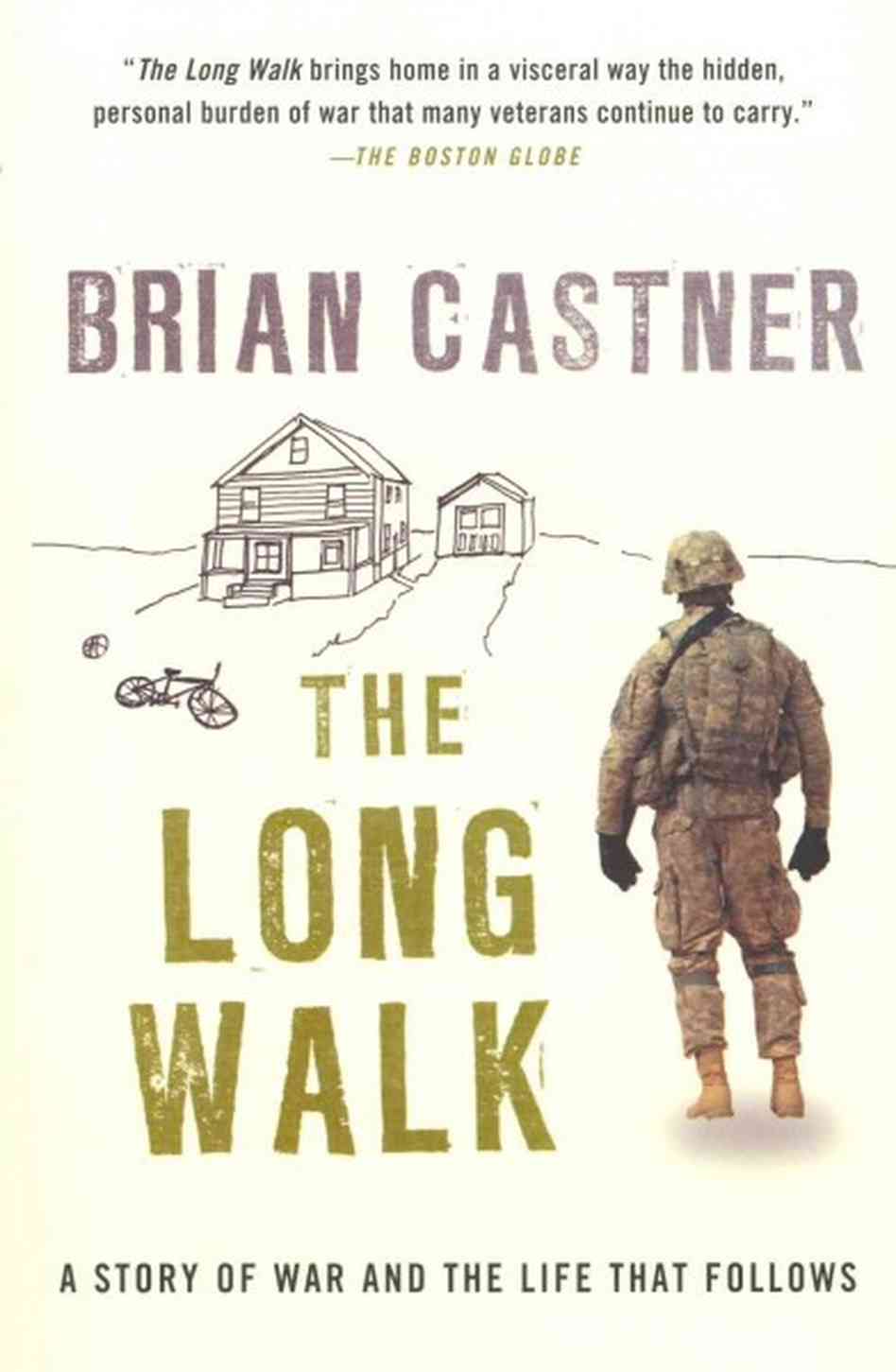DMACC campuses selected Brian Castner’s memoir, The Long Walk, an unflinching look at the war in the Middle East and the psyches of soldiers after returning stateside, as the book for the One Book, One College, One Community program.
The purpose of One Book, One College, One Community is to foster opportunities for creativity, scholarship, critical thinking, academic dialogue, and fellowship within all DMACC campuses and the local communities they serve.
“39 teachers have opted to use the book within their curriculum, with at least one class using it on each DMACC campus,” said Library Director Rebecca Funke.
The contributing factor for choosing the book was its cross-disciplinary appeal—Criminal Justice, Sociology and Psychology are among the classes in which the book has been used—and because the subject matter is one that could lead to stimulating conversation among students and teachers.
“The Long Walk was chosen because it is a powerful story and could work for a variety of classes. My hope was that the book would be a catalyst for great discussion. War can be a very sensitive topic, but it is an important topic for us to engage in. The book was also affordable and the author, Brian Castner, was willing to visit DMACC to talk about the book,” said Funke.
So far, there has been a positive reception from the students and teachers using the book in class, especially from returning veterans, those on active duty, and family members of soldiers.
“They liked the book—although it was difficult to read at times. And they learned something from it. In all classes, they thought it was appropriate to discuss from a sociological perspective,” said Laurie Linhart, a professor in the Sociology department.
She assigned a chapter or two each week for the class to discuss and relate to what they were learning in class that week, and said that each week they had a good discussion over the material.
Randy Jedele, an English professor at DMACC, knew immediately after reading the memoir that he wanted to utilize the book in his classes. He had students comment on the chapter’s title and what they think it means in relation to the chapter, a quote that had an impact on the student, and a question they had about the chapter.
“The responses were amazing and as I suspected, my vets resonated with the material and shared some heart-wrenching truths from their own lives. This book provided many teachable moments. I’m very satisfied with my students’ reactions and shared feelings,” said Jedele.
Castner spoke to DMACC students on October 29, talking about what the book didn’t highlight, such as the process of writing the book, and how that has affected his life.
Writing The Long Walk helped as a sort of therapy for Castner, but his biggest help was not necessarily getting the book published, but rather telling his story to someone. Not having to remember every event that happened to him was also a blessing in disguise. Suddenly he didn’t need to hold himself accountable to memorialize each event that had happened, there was no longer guilt for forgetting because everything was written down for him, just in case he were to forget.
Looking back, Castner said that the experiences he had overseas were average. He didn’t experience anything that many other soldiers had not experienced.
“I died in Iraq. The old me left for Iraq and never came home: the man my wife married never came home, the father of my oldest three children never came home, if I didn’t die, I don’t know what else to call it,” wrote Castner.
It’s contemplations like this that help civilians understand some of the internal struggles that are common with many in the military.
The book alternates with sections from life in the war, to life in the suburbs of Buffalo, New York, often seeming a bit surrealistic, abruptly contrasting between the two vastly different lifestyles.
In one section Castner switches from debating which civilian he may have to shoot first, just so his unit’s truck can keep from being stopped (and vulnerable) in the middle of the road to going for a run in his neighborhood, trying to keep his demons and memories at bay.
Even if the book is not a requirement for class, it is strongly recommended by faculty and professors alike as a deeply moving and relatable approach to the war overseas.






Comments